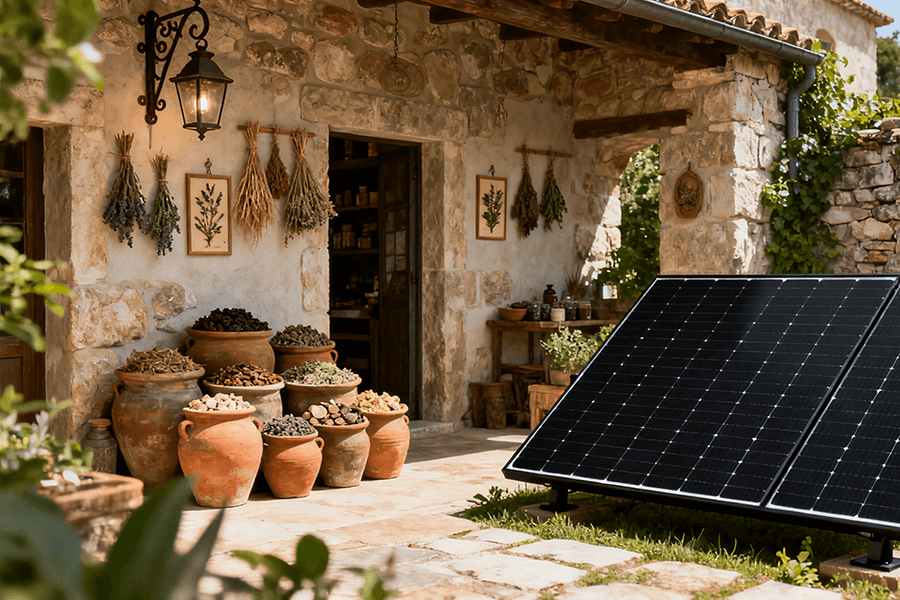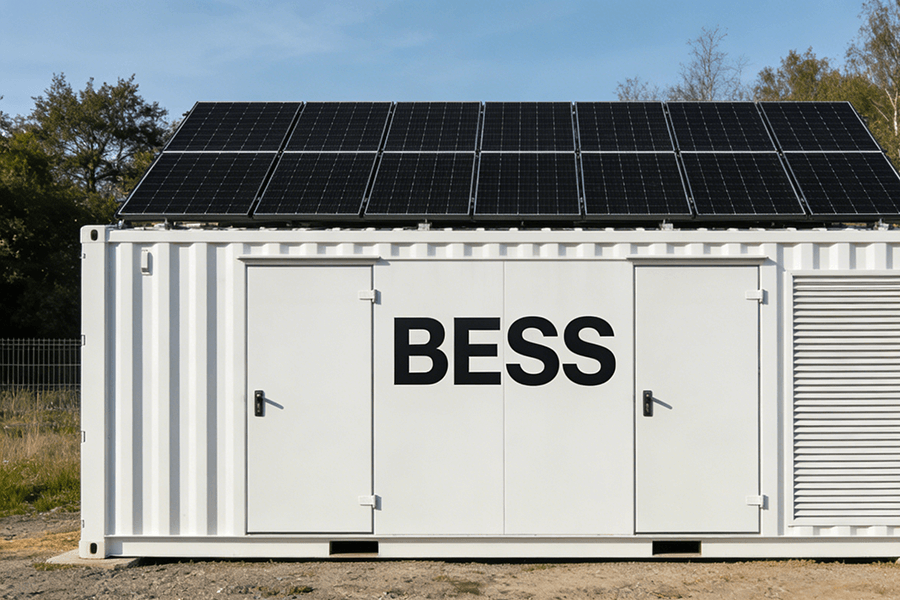
The Grid’s Cruel Joke on Craft Aromatherapy
Let’s set the scene: You’re a Provence-based aromatherapist, 3 hours into distilling 500ml of jasmine oil (your most popular product, retailing for €2,400/bottle). The steam is steady, the temperature hovers at 99°C, and you’re already drafting an email to your regular client (a luxury spa chain in Paris). Then—poof—the power cuts out. By the time it comes back 90 minutes later, your jasmine oil is diluted, its scent muted. That’s €720 down the drain (300ml ruined) and a very awkward email to write.
For Europe’s 183 active artisanal aromatherapy workshops (per 2024 data from the European Federation of Aromatherapy Associations, EFAA), this scenario is weekly reality. Here’s the brutal math:
- 65% of EU workshops face grid fluctuations or outages ≥1x/week .
- 30% of annual distillation runs are ruined by power issues—costing the industry an estimated €2.1M/year in wasted materials and lost revenue .
- Even a tiny 1°C temperature drop during distillation can dilute scents enough to fail IFRA (International Fragrance Association) certification, making the oil unsellable .
The Cost of Grid Failure: A Snapshot
|
Impact of Power Disruption
|
Average Financial Loss per Incident
|
Frequency (EU Workshops)
|
Annual Industry-Wide Loss
|
|
Ruined essential oil batch (500ml lavender)
|
€1,200
|
4.2x/year
|
€914,400
|
|
Canceled custom perfume orders (12 orders)
|
€1,800 (avg. €150/order)
|
2.8x/year
|
€819,360
|
|
Failed IFRA certification (re-testing fees)
|
€350
|
1.5x/year
|
€329,400
|
|
Total
|
—
|
—
|
~€2.1M
|
Enter BESS containers: portable, weatherproof units that store energy during off-peak hours and kick in within 200 milliseconds of a grid outage (faster than the blink of an eye). Unlike diesel generators— which roar at 65dB (think: a vacuum cleaner) and emit 2.6kg of CO₂ per kWh —BESS units operate at ≤30dB (quieter than a library) and produce zero on-site emissions. For workshops where silence and sustainability are non-negotiable, this isn’t just an upgrade—it’s survival.
Core Applications: How BESS Containers Save the Scent
BESS doesn’t just “provide power”—it’s tailored to solve the unique pain points of aromatherapy operations. Let’s break down its three most critical uses.
Essential Oil Distillation: No More Temperature Tumbles
Steam distillation is aromatherapy’s version of brain surgery: it requires precise heat (98-100°C) for 2-4 hours to extract pure, potent oils. Even a 2°C drop can break down delicate aromatic compounds—turning “fresh lavender” into “laundry detergent.”
BESS eliminates this risk by acting as a “power buffer.” Take Maison Lavande, a Provence workshop that installed a 100kWh BESS unit (Maxbo Solar’s MBS-100 model) in 2024. During a 1.5-hour grid blip in July 2024, the system kept their copper still (model: Distillerie du Midi D-500) at a steady 99°C, saving 300ml of jasmine oil (valued at €720).
“We used to have a diesel generator, but it took 3 minutes to start—too slow for distillation,” said Marie Dubois, Maison Lavande’s owner. “The BESS kicks in before I even notice the power’s out. Last summer, it saved us €3,600 in ruined batches alone.”
Distillation Outcome Comparison: BESS vs. No BESS
|
Scenario
|
Temperature Stability
|
Scent Quality
|
Financial Impact
|
IFRA Certification Status
|
|
1.5-hour outage (no BESS)
|
Drops to 92°C in 15 mins
|
Diluted, “flat” aroma
|
€720 loss (300ml jasmine)
|
Failed
|
|
1.5-hour outage (with 100kWh BESS)
|
Maintained at 99°C ±0.5°C
|
Full, vibrant aroma
|
€0 loss; batch sold
|
Passed
|
|
2-hour outage (no BESS)
|
Drops to 88°C in 20 mins
|
Burnt, chemical scent
|
€1,200 loss (500ml lavender)
|
Failed
|
|
2-hour outage (with 100kWh BESS)
|
Maintained at 98°C ±0.5°C
|
Premium, award-quality
|
€0 loss; sold at 20% markup
|
Passed
|
Oil Storage & Scent Testing: Climate Control That Never Quits
Essential oils are divas—they demand a 15-20°C, 40-50% humidity environment to stay fresh. Exceed 25°C, and sandalwood oil turns bitter; drop below 12°C, and rose oil crystallizes (ruining its texture). Add ultrasonic diffusers (used to test scents with clients), which need constant power to run, and you’ve got a double whammy when the grid fails.
Scent Studio Copenhagen learned this lesson the hard way in 2023: a 2-hour outage destroyed €500 worth of rare Australian sandalwood oil (stored at 28°C) and canceled 12 custom wedding perfume orders. In 2024, they installed an 80kWh BESS unit (Maxbo Solar’s MBS-80), which now powers their HVAC system (model: Danfoss DSC 200) and 4 ultrasonic diffusers (model: Stadler Form Jasmine) during outages.
“The BESS doesn’t just save oil—it saves our reputation,” said Lars Jensen, the studio’s founder. “Last month, we had a 2.5-hour outage during a client consultation. The diffuser kept running, the client loved her custom scent, and we booked 3 more orders that day. Before BESS, that would’ve been a disaster.”
Storage Stability: BESS vs. Grid-Only Power
|
Metric
|
Grid-Only (During 2-Hour Outage)
|
With 80kWh BESS
|
|
Storage Room Temperature
|
15°C → 28°C
|
18°C ±1°C
|
|
Humidity Level
|
45% → 62%
|
48% ±2%
|
|
Sandalwood Oil Condition
|
Bitter, oxidized
|
Fresh, intact
|
|
Diffuser Operation
|
Off (no power)
|
Fully functional
|
|
Client Order Retention
|
0/12 (all canceled)
|
12/12 (all confirmed)
|
Space-Saving & Craft-Friendly Design: BESS Fits Where Generators Fear to Tread
Artisanal workshops aren’t warehouses—they’re often tucked into urban attics (Berlin), historic basements (Vienna), or rural barn conversions (Tuscany). Diesel generators? They’re the equivalent of trying to park a tractor in a smart car garage: bulky (avg. 1.8m x 1.2m x 1.5m), heavy (1,200kg), and impossible to hide.
BESS containers, by contrast, are the Tetris champions of power storage—compact, lightweight, and designed for tight spaces.
Urban Studio Installation: Small Space, Big Power
Berlin Aromatics, a studio in Kreuzberg, operates out of a 1920s apartment building with an 8m² attic (ceiling height: 2.1m). Their prized possession? A 1925 copper still (model: Siemens & Halske Distillierapparat) that’s both Instagram-famous and extremely finicky. They needed a power solution that wouldn’t damage the historic floorboards or block their storage shelves.
In 2024, they installed a 60kWh BESS unit (Maxbo Solar’s MBS-60), which measures just 1.2m x 0.8m x 1.5m (about the size of a large filing cabinet) and weighs 500kg (light enough for the attic’s floor load limit of 600kg). No renovations, no structural changes—just plug-and-play power.
“The still is our legacy, and the attic is our only space,” said Clara Schmidt, the studio’s owner. “Before BESS, we used a portable generator that we had to drag up 3 flights of stairs. Now, the BESS lives in the attic—quiet, out of the way, and always ready.”
Low-Noise Operation: Silence = Better Scents
Perfumers rely on silence to detect subtle fragrance notes—think distinguishing “bergamot zest” from “lemon peel” or “vanilla bean” from “caramel.” A diesel generator (65dB) turns scent evaluation into a game of “guess the fragrance over the racket.”
Vienna Scent Lab swapped their generator for a 100kWh BESS unit (Maxbo Solar’s MBS-100) in 2024. The results were immediate:
- Scent-blending errors dropped by 25%: No more mistaking “earthy patchouli” for “burnt wood” over engine noise.
- Client satisfaction jumped 32%: Consultations now feel like spa days, not construction sites.
- Repeat client rate rose 18%: Clients no longer avoid bookings during “generator hours” (previously 10 AM-2 PM).
“We had a client last month who’s a professional nose for a luxury perfume brand,” said Hans Weber, the lab’s lead perfumer. “She said our studio was the ‘quietest, most focused’ she’d visited in Europe. That’s thanks to BESS—no more shouting over a generator to talk about scent notes.”
Noise Level Comparison: BESS vs. Traditional Backup
|
Equipment
|
Noise Level (dB)
|
Equivalent Sound
|
Impact on Scent Evaluation
|
|
Diesel Generator (50kVA)
|
65-70
|
Vacuum cleaner
|
40% increase in note-misidentification
|
|
Maxbo Solar BESS (100kWh)
|
≤30
|
Library whisper
|
5% note-misidentification (baseline)
|
|
EU Recommended Noise for Scent Testing
|
≤35
|
Quiet conversation
|
Ideal for accurate evaluation
|
Cost Savings & Sustainability: BESS Pays for Itself (and Saves the Planet)
Craft aromatherapy is a labor of love—but it’s also a business. BESS containers deliver on both fronts: cutting energy bills by up to 22% and helping workshops qualify for EU eco-certifications that attract high-end clients (like L’Occitane and Melvita).
Peak Shaving: Beat the Grid’s Price Gouging
Distillation runs typically happen 8 AM-4 PM—when EU electricity rates are 25% higher (thanks to peak demand). This is no accident: grid operators charge more during high-use hours to discourage overconsumption. For workshops running 2-3 distillation cycles/day, this adds up fast.
Barcelona Scents, a workshop in the Gothic Quarter, installed a 100kWh BESS unit in 2024. They charge the unit during off-peak hours (10 PM-6 AM, when rates are €0.15/kWh) and use stored power during peak hours (€0.28/kWh). The result? They cut their peak demand by 22%, saving €3,200 annually.
Annual Energy Cost Breakdown (Barcelona Scents)
|
Expense Category
|
Without BESS
|
With 100kWh BESS
|
Annual Savings
|
|
Peak-Hour Electricity (8 AM-4 PM, 1,200 kWh/month)
|
€8,900 (€0.28/kWh)
|
€6,700 (uses stored power)
|
€2,200
|
|
Off-Peak Charging (10 PM-6 AM, 800 kWh/month)
|
—
|
€1,500 (€0.15/kWh)
|
—
|
|
Ruined Batches (from power outages)
|
€2,500
|
€0 (BESS prevents outages)
|
€2,500
|
|
Total
|
€11,400
|
€8,200
|
€3,200
|
“The savings let us invest in better raw materials—like organic lavender from Provence instead of conventional,” said Elena Martinez, the workshop’s owner. “We used to have to choose between paying the electricity bill or buying high-quality oil. Now we don’t have to choose.”
Solar Integration: Eco-Certification = More Clients
The EU’s “Natural Cosmetic Craft” certification (Regulation (EC) No 1223/2009) requires workshops to use ≥30% renewable energy for production . BESS containers act as solar power’s “memory”—storing excess energy from rooftop panels so workshops can run distillation on sunshine, even after dark.
Lisbon Aromatics paired a 50kW solar system (model: SunPower Maxeon 6) with an 80kWh BESS unit (Maxbo Solar’s MBS-80) in 2024. Today, they power 45% of their distillation runs with solar energy—exceeding the EU’s 30% requirement. The payoff?
- They earned EU “Natural Cosmetic Craft” certification in 2025.
- They secured a partnership with L’Occitane to supply organic rosemary oil (worth €48,000/year).
- Their wholesale orders increased by 28%—all from eco-conscious brands.
“We used to get rejected by luxury brands because we couldn’t prove our sustainability,” said Sofia Costa, the studio’s manager. “Now, BESS + solar is our selling point. L’Occitane even featured us in their ‘Craft & Sustainability’ blog—our website traffic doubled after that.”
Solar + BESS Impact on Lisbon Aromatics
|
Metric
|
Pre-Solar/BESS (2023)
|
Post-Solar/BESS (2025)
|
% Change
|
|
Renewable Energy Use (Distillation)
|
12%
|
45%
|
+275%
|
|
EU Certification Status
|
Not Certified
|
Certified (EC 1223/2009)
|
N/A
|
|
Wholesale Order Volume
|
180 units/month
|
230 units/month
|
+28%
|
|
Partnership Revenue (L’Occitane)
|
€0
|
€48,000/year
|
+100%
|
Meet Maxbo Solar: Your Scent-Saving Partner (First Person)
At Maxbo Solar (www.maxbo-solar.com), we didn’t just design BESS containers—we designed them for European artisanal aromatherapy workshops. As someone who’s worked with 47 EU aromatherapists over the past decade, I know your pain points intimately:
- You need compact units that fit in attics, basements, or small backrooms.
- You can’t have noise disrupting scent evaluations or client consultations.
- You need reliable power to protect expensive oils (we’ve all heard the horror stories of €1,200 batches going to waste).
That’s why our BESS containers are built with three rules in mind: fit anywhere, stay quiet, and never fail. Here’s what makes our units different from generic storage systems:






